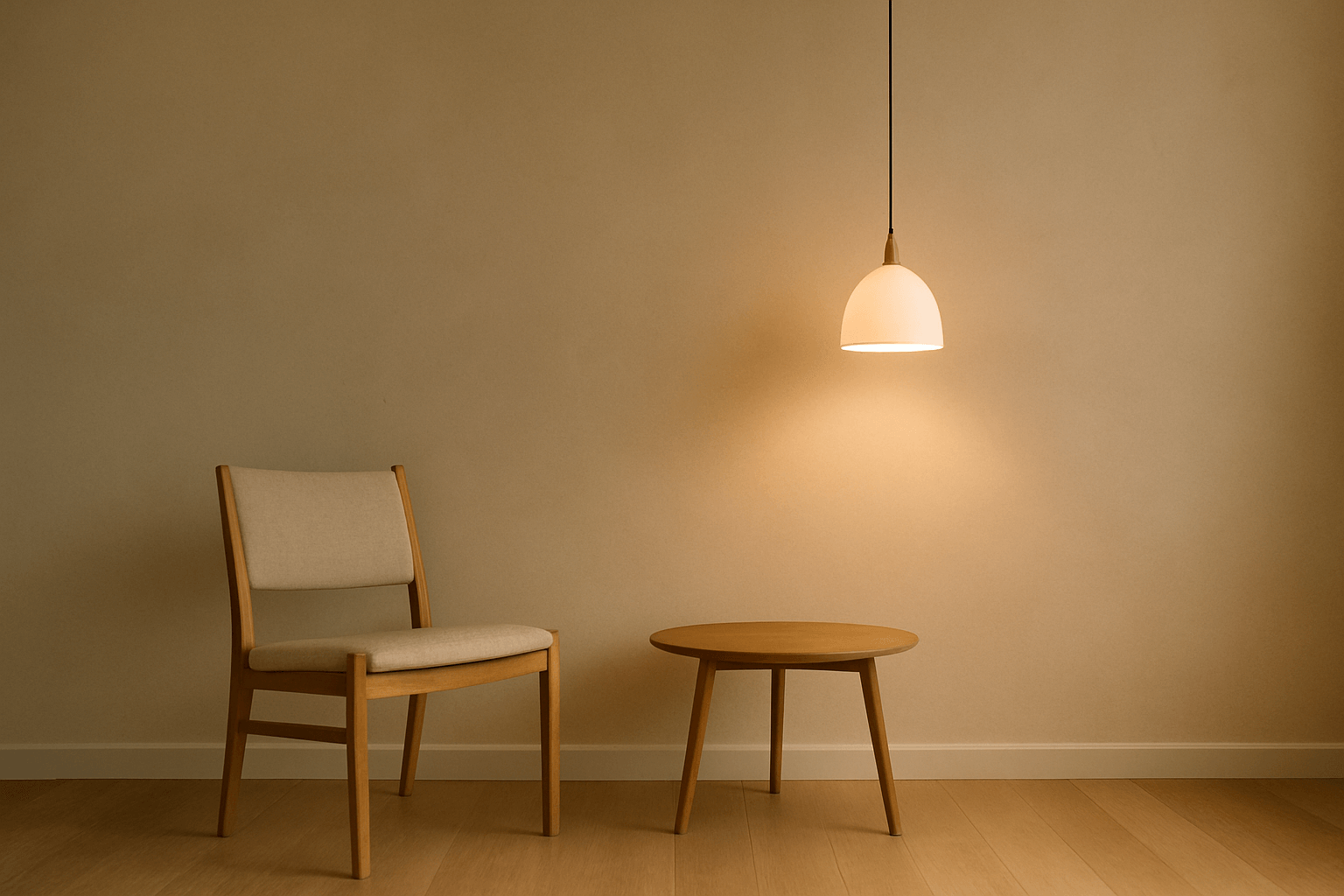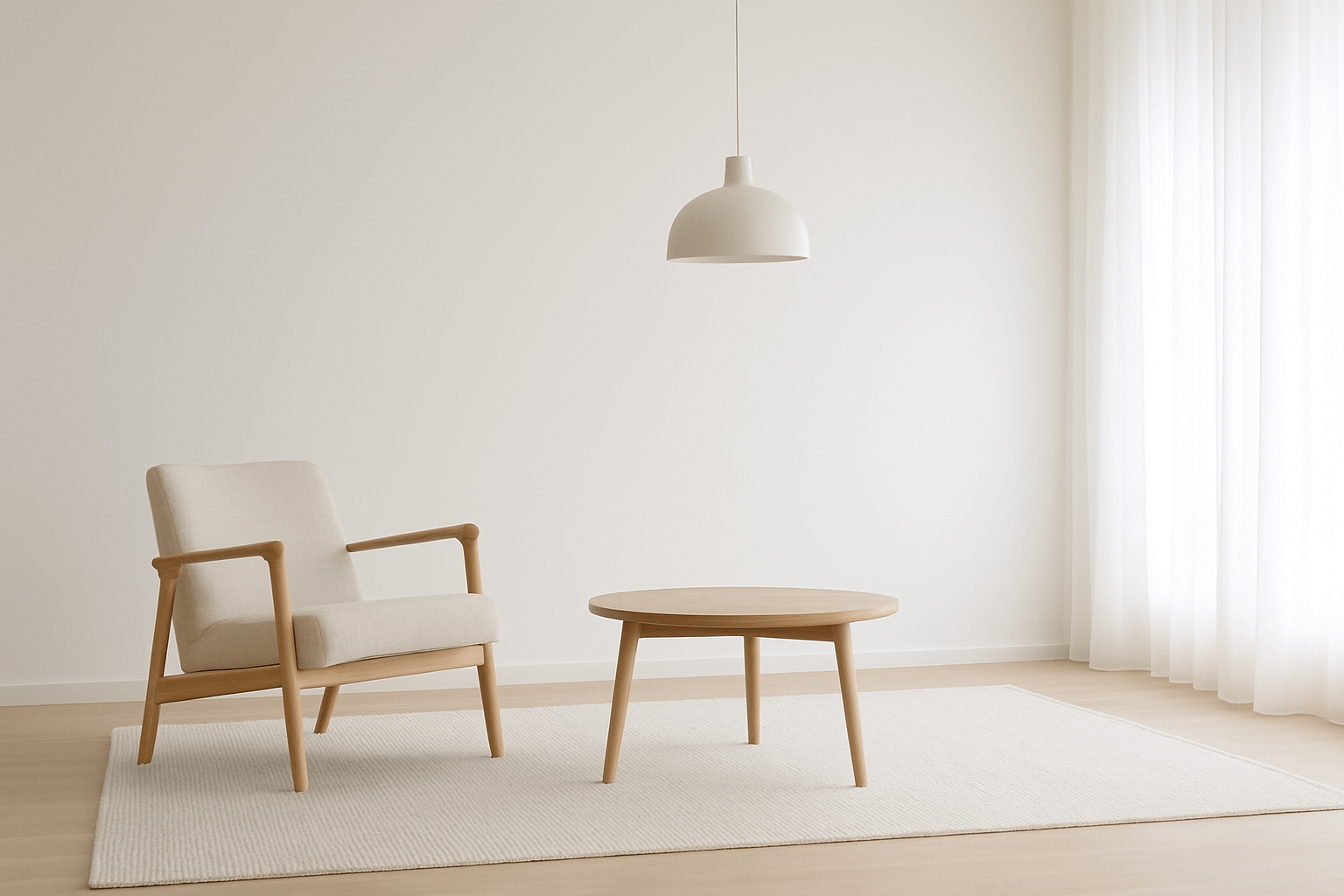What is Warm Minimalism?
Warm minimalism blends the clean, uncluttered aesthetic of minimalism with cozy textures, soft color palettes, and natural materials. Unlike cold, sterile minimalism, this style creates a serene yet inviting space where simplicity meets comfort.
Why Choose Warm Minimalism?
-
Balance of Simplicity & Comfort
It maintains a clutter-free look while still feeling homely and welcoming. -
Timeless Aesthetics
Soft neutrals, wood tones, and organic shapes ensure your space feels modern but not stark. -
Supports Mindful Living
A cozy minimalist home promotes relaxation and reduces sensory overload.
Key Elements of Warm Minimalist Design
1. Soft, Neutral Color Palettes
Use warm whites, beiges, taupes, and earthy tones to soften the space.
2. Natural Materials
Incorporate wood, linen, wool, and ceramics to add texture and warmth.
3. Layered Textures
Combine different textures through rugs, throws, cushions, and curtains to create depth.
4. Simple, Functional Furniture
Opt for furniture with clean lines but in warm materials like oak, walnut, or soft fabrics.
Tips to Achieve a Warm Minimalist Look
-
Use Lighting to Add Warmth
Go for soft, diffused lighting through fabric lampshades, wall sconces, and warm-toned bulbs. -
Less is More — But Not Less Comfort
Choose fewer decor pieces but ensure they add softness and personality. -
Bring Nature Indoors
Add plants, dried flowers, or small stone and wood accents to connect with nature.
Common Mistakes to Avoid
-
Overusing cold tones like stark whites and grays.
-
Keeping surfaces too bare, making the space feel empty rather than serene.
-
Neglecting texture—remember, texture is key to warmth.
Final Thoughts
Warm minimalism is perfect for those who crave simplicity but don’t want to sacrifice coziness. By thoughtfully layering textures, using warm tones, and focusing on natural materials, you can create a home that feels both calming and inviting.
















